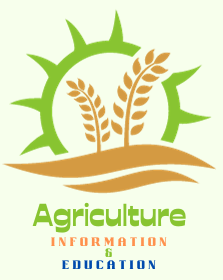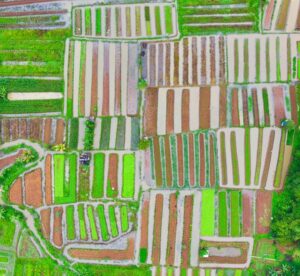Introduction:
The intersection of Artificial Intelligence (AI) and agriculture holds immense promise for addressing one of humanity’s most pressing challenges: global food security. As the world’s population burgeons and environmental pressures escalate, the need for innovative and sustainable solutions in agriculture becomes paramount. AI, with its capacity to process vast amounts of data and derive actionable insights, emerges as a potent ally in the quest for sustainable food production.
Precision Agriculture: Nurturing Crops with Data Precision:
At the heart of the AI-agriculture revolution lies precision agriculture, a paradigm that leverages AI to enhance decision-making processes at the farm level. Through the integration of AI-powered sensors, drones, and data analytics, farmers gain access to a wealth of information about soil health, weather patterns, and crop conditions. This data-driven approach enables farmers to make informed decisions, optimizing resource allocation and minimizing environmental impact.
The ability to monitor crops in real-time is a game-changer for farmers. AI algorithms, processing data from satellites and ground-based sensors, can swiftly identify issues such as diseases, pests, and nutrient deficiencies. Early detection allows for targeted interventions, reducing the reliance on chemical inputs and promoting sustainable farming practices. It’s a win-win situation where farmers benefit from increased yields while minimizing their environmental footprint.
Smart Irrigation: Watering Wisely with AI Insights:
Water scarcity is a critical concern in agriculture, and AI is stepping in to optimize water use through smart irrigation systems. AI algorithms factor in real-time weather forecasts, soil moisture levels, and crop water requirements to determine optimal irrigation schedules. This not only conserves water but also improves crop yield and mitigates the environmental impact of excessive water use.
The implementation of smart irrigation demonstrates the potential of AI to address multiple challenges simultaneously. By fostering water efficiency, farmers not only enhance their productivity but also contribute to sustainable water resource management, a crucial aspect of global environmental sustainability.
Predictive Analytics: Anticipating Yields and Challenges:
One of the pivotal contributions of AI to agriculture is its ability to harness predictive analytics. By analyzing historical data, climate patterns, and various other variables, AI models can forecast crop yields. This foresight is invaluable for farmers and policymakers alike, providing insights into planting strategies, market trends, and distribution planning.
Predictive analytics not only helps in optimizing agricultural operations but also plays a crucial role in risk management. Farmers can better prepare for challenges such as extreme weather events or market fluctuations, contributing to the overall resilience of the agricultural sector.
Supply Chain Optimization: From Farm to Fork:
The impact of AI extends beyond the fields to optimize the entire food supply chain. Leveraging AI for logistics, traceability, and inventory management, the agricultural sector can minimize waste and enhance efficiency. Predictive analytics assists in preventing spoilage by ensuring that harvested crops reach their destination in optimal condition.
Efficient supply chains are not only economically beneficial but also environmentally friendly. Reducing waste at every stage of the supply chain aligns with sustainability goals, promoting responsible consumption and production patterns.
Crop Breeding and Genetic Optimization: Accelerating Progress with AI:
AI’s ability to process and analyze vast datasets expedites the crop breeding process. By identifying genetic markers associated with desirable traits such as resilience, yield, and nutritional content, AI contributes to the development of more robust and sustainable crop varieties.
This acceleration in crop breeding is instrumental in adapting agriculture to changing climates and evolving environmental conditions. The development of climate-resilient crops is a key component of ensuring long-term food security in the face of a dynamic and uncertain climate.
Farm Robotics: Automating Agriculture for Efficiency:
The integration of AI-powered robots and autonomous machinery heralds a new era in agriculture. These technologies can perform tasks such as planting, harvesting, and weeding with precision and efficiency, reducing the need for manual labor. Beyond the labor-saving aspect, farm robotics minimizes the environmental impact associated with traditional farming practices.
Farm robots contribute to sustainability by optimizing resource use and minimizing the ecological footprint of agriculture. These technologies are particularly promising in addressing labor shortages in the agricultural sector while fostering more environmentally friendly farming practices.
Climate Resilience: Navigating Uncertain Agricultural Futures:
AI’s ability to analyze and interpret climate data is a powerful tool in helping farmers adapt to changing weather patterns. By providing early warnings and actionable recommendations, AI contributes to building resilience in agriculture. This is especially crucial as climate change introduces new challenges, such as altered precipitation patterns, increased temperatures, and more frequent extreme weather events.
Empowering farmers with information and tools to navigate climate uncertainties is vital for ensuring the stability of food production in the long term. AI’s role in climate resilience aligns with the broader goal of building sustainable and adaptable agricultural systems.
Data-Driven Decision-Making: Empowering Farmers with Knowledge:
Central to the AI-agriculture nexus is the concept of data-driven decision-making. Farmers can benefit from AI-driven decision support systems that consider a multitude of factors to recommend optimal strategies for planting, fertilizing, and harvesting. This democratization of information empowers farmers of all scales to make informed choices that maximize productivity and sustainability.
Educational tools and platforms harnessing AI can further amplify knowledge-sharing initiatives. By providing real-time information, best practices, and insights, these tools contribute to a more informed and connected global agricultural community.
Ethical Considerations and Responsible AI Development:
As we embrace the potential of AI in agriculture, it is crucial to consider ethical implications and prioritize responsible AI development. Issues such as data privacy, transparency, and the equitable distribution of benefits must be addressed to build trust among stakeholders. Responsible AI development ensures that the benefits of these technologies are accessible to farmers globally and that their deployment aligns with ethical standards.
Conclusion:
In conclusion, the convergence of AI and sustainable agriculture holds immense promise for addressing global food security challenges. From precision agriculture to supply chain optimization, AI technologies offer multifaceted solutions that enhance productivity while minimizing environmental impact. To fully realize the potential of AI in agriculture, it is essential to prioritize responsible development, address ethical considerations, and ensure that these technologies are accessible to farmers worldwide. The marriage of AI and sustainable agriculture represents a transformative force in shaping the future of food production and global food security.


Very nice